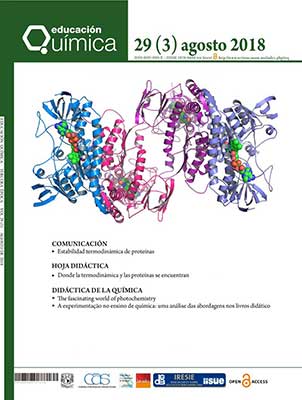Herramientas digitales para la enseñanza y aprendizaje de Química en escolares Chilenos
Main Article Content
Abstract
The teaching of science has two fundamental components: theory and experimentation. In Chile, experimental work is scarce, due to lack of infrastructure in educational establishments and an extensive academic curriculum.
One tool that compensates for the lack of experimentation at school level is the virtual laboratory, however in Chile there are few reports about the use of this type of tools. It is for this reason that the purpose of this research has been to determine the influence of Virtual Chemistry Laboratories (VCL) on the academic performance and motivation of high school students. It was conducted with four courses of middle education of two establishments of the city of Los Angeles-Biobío, corresponding to a municipal school and a subsidized private school. Of those courses, two per establishment, one of them was used as a control group and the other as an experimental group. In addition, experimental activities were designed in accordance with current plans and programs of the Ministry of Education (MINEDUC) for the third year and motivational surveys were applied to the students.
The results show that in both establishments there were improvements in the learning and motivation of the students, however, only in one of them there was an improvement in the academic performance.
Article Details
Citas en Dimensions Service

Educación Química por Universidad Nacional Autónoma de México se distribuye bajo una Licencia Creative Commons Atribución-NoComercial-SinDerivar 4.0 Internacional.
Basada en una obra en http://www.revistas.unam.mx/index.php/req.




